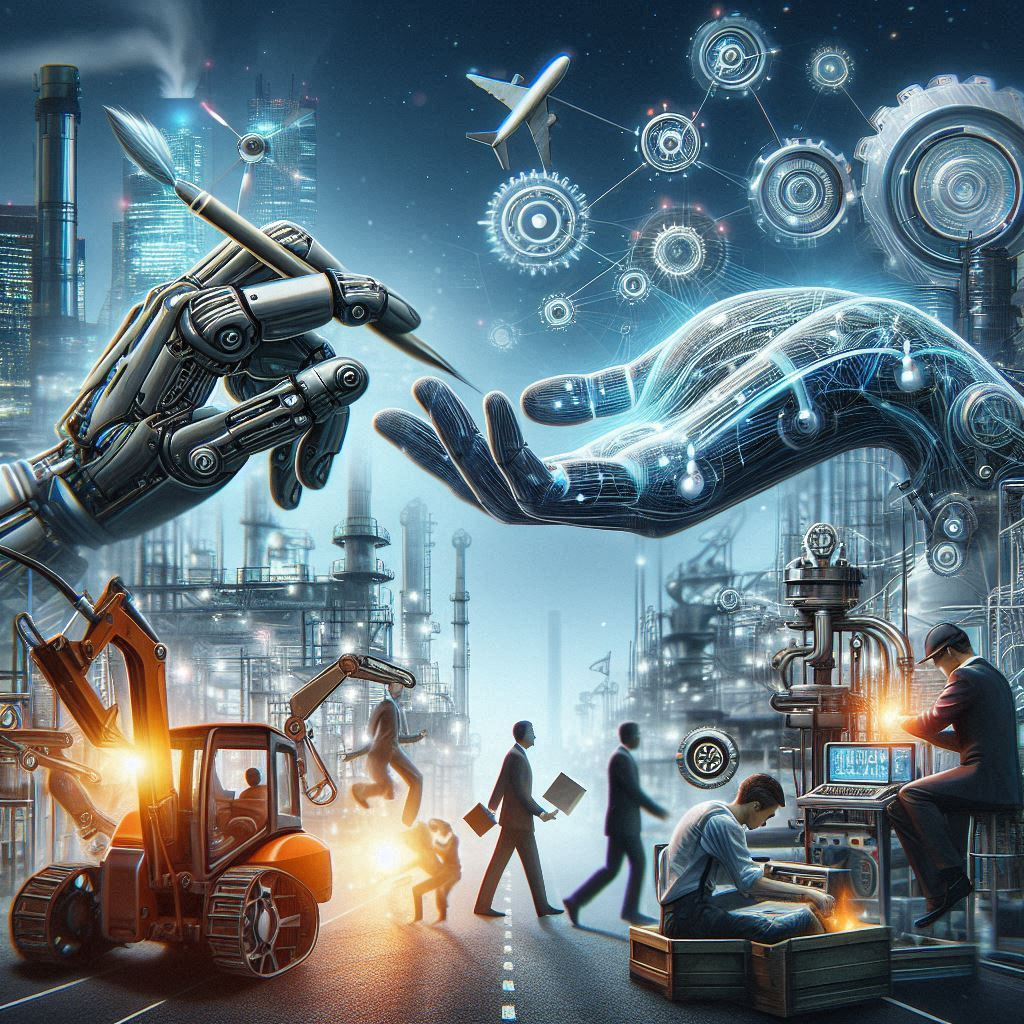From Human Hands to High Tech: Automation's Impact on Industries
The industrial landscape is undergoing a revolution driven by the rise of automation. Manual machinery, once the backbone of production, is steadily being replaced by sophisticated automatic systems. This shift is having a profound impact on industries across the board, and the results are nothing short of impressive.
The Power of Automation
Automation offers a multitude of benefits that are transforming industries. Here are some key advantages:
• Increased Productivity: Automatic machines can operate tirelessly, churning out products at significantly faster rates than human workers. This translates to higher output, shorter lead times, and a significant boost to a company's bottom line.
• Enhanced Quality: Automation removes human error from the equation, leading to greater consistency and precision in production. This is especially crucial for industries like pharmaceuticals and electronics, where even minor flaws can have disastrous consequences.
• Reduced Costs: While the initial investment in automated machinery can be high, the long-term savings are substantial. Reduced labor costs, minimized waste, and improved efficiency all contribute to a healthier financial picture.
• Improved Safety: Many manual tasks can be dangerous, but automation removes workers from hazardous environments. This not only protects lives but also reduces the number of work-related injuries and illnesses.
Interesting Facts about Automation
• A 2017 study by McKinsey Global Institute estimated that up to 800 million jobs could be automated by 2030. However, the study also predicts that automation will create new job opportunities in areas like design, engineering, and data analysis.
• The International Federation of Robotics reports that global robot sales hit a record high in 2021, with over 517,000 units sold. This surge in demand highlights the growing importance of automation in the industrial sector.
• Automation is not just for large-scale manufacturing. Even small businesses are increasingly adopting automated solutions to streamline operations and gain a competitive edge.
The Future of Automation
The future of automation is bright. As technology continues to advance, we can expect to see even more sophisticated and intelligent machines emerge. Artificial intelligence, machine learning, and the Internet of Things (IoT) will all play a crucial role in driving the next wave of automation.
The Impact on Workers
While automation does necessitate workforce changes, it's not all doom and gloom. As manual jobs are automated, new opportunities will arise. Workers will need to develop new skills to adapt to the changing landscape. This will require a focus on continuous learning and reskilling initiatives.
The transition from manual to automatic machinery is a defining moment in industrial history. It's a testament to human ingenuity and a glimpse into a future where machines seamlessly collaborate with humans to create a more productive and efficient world.
